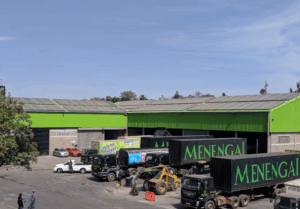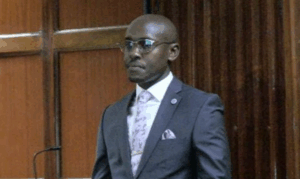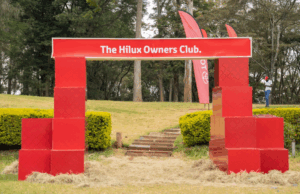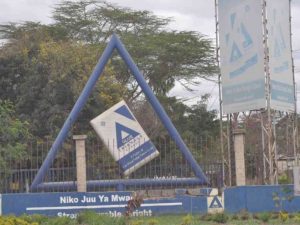USAID Pushes For More Funding In Northern Kenya

USAID Kuza has urged stakeholders to increase financing for small and medium enterprises in Northern Kenya in a bid to close the funding gap.
This comes even as public, private, and development sector actors gathered in Nairobi for the Northern Kenya Impact Investment Conference where financiers and investors pledged their support for impact investments aimed at contributing to sustainable development of the region.
The one-day conference hosted by USAID Kuza and partners, themed “Why Northern Kenya, Why Now?” discussed the status, and opportunities and addressed constraints for investment in the region. They also explored the growing need to close the funding gap hindering enterprise development in northern Kenya.
Over $14 million has been disbursed to over 9000 small and micro enterprises in the Northern Kenya region through the Impact for Northern Kenya Fund targeting various sectors such as agriculture, livestock, energy, climate, and tourism.
The Fund, an impact investment wholesale financing vehicle lending catalytic capital to financial institutions for on-lending to micro, small- and medium-sized enterprises (MSMEs) under the USAID Kuza project has seen the creation of over 16,500 jobs in the arid and semi-arid counties of Garissa, Isiolo, Lamu, Mandera, Marsabit, Samburu, Tana River, Turkana, Wajir and West Pokot.
USAID Kuza, Chief of Party, Wyanie Bright, commented during the conference: “The ‘missing middle’ small and medium-sized enterprises (SMEs) struggle to access appropriate financing to support their growth and development. By addressing the financing needs of the missing middle, stakeholders can empower SMEs in Northern Kenya to grow, innovate, and create jobs, ultimately driving economic development and social progress in the region’s growth and sustainable development of the region. While there is a concerted effort by the government, the development sector, and the private sector to grow the number of enterprises operating in Northern Kenya, there is a need to match their demand for financing through financing the financiers. 59% percent of the lending has been to women-owned enterprises and women groups,” she added.
The Cabinet Secretary for the East African Community, Arid and Semi-Arid Lands Regional Development, Rebecca Miano, commented during the conference: “As you explore the range of opportunities for investment in the ASALs, I urge you to zero in on practical solutions with transformative impact alongside those that hold the greatest promise for job creation for our youth. On its part, the Government will continue improving the investment environment for accelerated prosperity of the ASALs. This includes reviewing existing laws and regulations as well as practices that hinder ease of doing business for private sector players and public-private sector partnerships to thrive”.
Other discussions delved around efforts in greening the north, considering the vital connection between environmental factors and the agricultural sector in Northern Kenya, as well as sustainable job creation in counties where the dominant economic activity is pastoralism providing between 90% of jobs and 95% of household income.
The region also boasts a diverse range of landscapes, wildlife, and cultural heritage, which offer significant potential for tourism development and the stakeholders discussed ways of promoting a thriving tourism industry to create jobs, preserve local culture, and contribute to sustainable development.
The 2023 Northern Kenya Impact Investment Conference was supported by USAID Feed the Future, ACDI/VOCA, USAID Kuza, USAID Livestock Market Systems, AV Ventures, Impact for Northern Kenya Fund, GIZ, KCB Foundation, East Africa Seed, Middle East Bank, Kenya Union of Savings and Credit Co- Operatives Ltd. (KUSCCO), Kenya Climate Innovation Centre (KCIC), Agricultural Finance Corporation (AFC), Solargen Technologies Ltd., the County Government of West Pokot, WePesa SACCO, Lelan Farmers SACCO, Fadhili Micro Enterprise Ltd., Incredo Access Solutions Ltd., First Capital Ltd., and Smart Regional Consultants.






